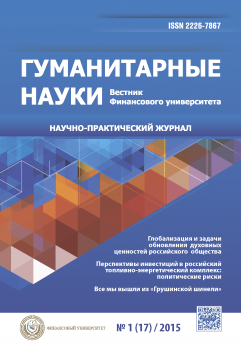Development of critical thinking as a strategic aim of educational process can be achieved when techniques applied to the material in use explicate logical operations (analysis and synthesis)necessary to perform a task. The article gives a short characteristic of the method of denotata description which can be applied to professional text reading and which transforms the process of understanding into the staged and conscious elicitation of information about a subject and its relations and links. 71 № 1(17)/2015 лингводидактика The method which is developed by A.I. Novikov and his working group aims to reveal the realia described in the text and their relationships. Realia, or denotata, are treated in this approach as the content units, and the corresponding linguistic expressions are labeled as names of the denotata. The denotata are marked in the graphic form that visualizes the content of the text in the scheme. To complete the scheme it is important to externalize the links between the realia naming them. In other words the scheme (a denotata map) reflects the main object described in the text (which is the core set of the scheme), its aspects at different levels and the relations of the aspects. As a whole the scheme presents an integral model of a certain situation of reality. The method of denotata schemes is especially effective in the process of learning a foreign language when linguistic difficulties appear to be an additional barrier for understanding the content of a professionally oriented text. The method allows the readers to differentiate the denotata and their names, the content and the language describing the content, the structure of the text and the structure of the objects described. Such an approach to the text reading constitute the base for the lexical competence development as well as the linguistic competence in general which is an essential element of critical thinking.
critical thinking, graph, subject relations, text analysis, denotata.
Развитие способности самостоятельно мыслить и усвоение знаний, необходимых специалисту, представляют собой две основные задачи обучения в высшей школе. Способность мыслить, по словам философа и психолога-педагога Э.В. Ильенкова, есть умственная культура, превращенная в личную собственность, личное достояние, принцип деятельности личности [1, с. 286]. Освоение умственной культуры как принципа деятельности наиболее эффективно в условиях осознанной деятельности, в ситуации осознанного применения инструментов понимания, когда знание о научно-рациональном способе мышления сочетается с формированием навыка работы с ним. В условиях работы с текстовым учебным материалом его понимание и усвоение обеспечивается, в частности, через постановку перед учащимися вопросов о том, какие проблемы и задачи затрагивает данная в текстах информация, ответы на какие дополнительные вопросы дает, достижению каких целей способствует. В случае если источником информации является иноязычный текст, задача «понять и усвоить содержание текста» усложняется (умножается на два), что не всегда осознается учащимися, которые концентрируют внимание на иноязычных словах и отвлекаются от описываемой в тексте объективной (относящейся к профессии) реальности. В результате от внимания учащихся ускользает содержание текста, суть предмета, рассматриваемого в тексте, его связи и отношения в контексте профессиональной деятельности. В условиях, когда задачи образования — развитие мышления и усвоение специальных знаний — решаются в ходе работы с иноязычным текстом, раскрывается потенциал денотативного анализа текста как метода работы с его содержанием, позволяющим извлекать из текста информацию с полнотой и глубиной, соответствующей задачам профессиональной деятельности.
1. Ilyenkov E.V. Shkola dolzhna uchit´ myslit´! [School should teach you thinking!] Khrestomatiya po pedagogicheskoy psikhologii. [Readings in educational psychology].Moscow, International Pedagogical Academy Publ., 1995, pp. 284-312.
2. Novikov A.I. Tekst i ego smyslovye dominanty [A text and its semantic dominants]. Moscow, Institute of linguistics RAS Publ., 2007. 224 p.
3. Shchedrovitsky G.P. Lingvistika, psikholingvistika, teoriya deyatel´nosti [Linguistics, psycholinguistics, activity theory]. Available at: http://www.fondgp.ru/gp/biblio/rus/62/ (Accessed 3 December 2014).





